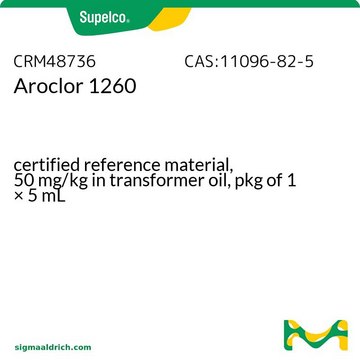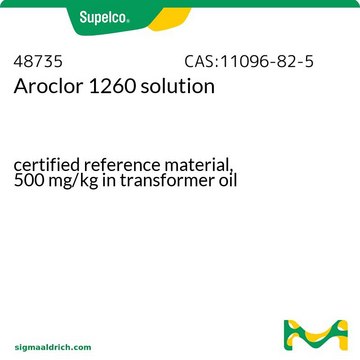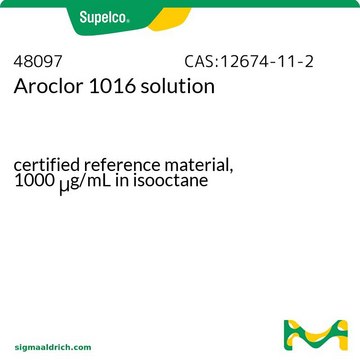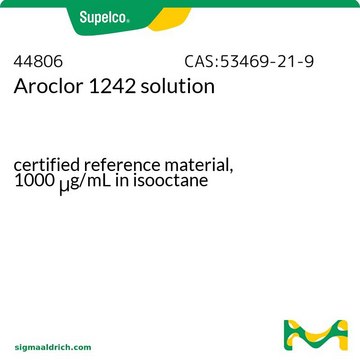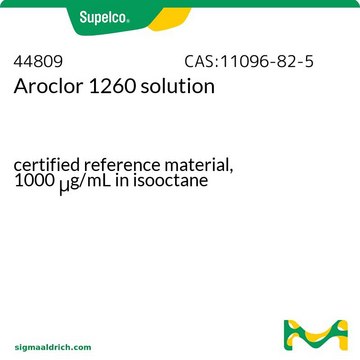48731
Aroclor 1242 solution
certified reference material, 500 mg/kg in transformer oil
About This Item
Polecane produkty
klasa czystości
certified reference material
TraceCERT®
linia produktu
TraceCERT®
Certyfikat analizy
current certificate can be downloaded
opakowanie
ampule of 5 mL
stężenie
500 mg/kg in transformer oil
metody
HPLC: suitable
gas chromatography (GC): suitable
Zastosowanie
environmental
format
single component solution
temp. przechowywania
room temp
InChI
1S/C12H6Cl4/c13-7-1-3-9(11(15)5-7)10-4-2-8(14)6-12(10)16/h1-6H
Klucz InChI
QORAVNMWUNPXAO-UHFFFAOYSA-N
Szukasz podobnych produktów? Odwiedź Przewodnik dotyczący porównywania produktów
Zastosowanie
Inne uwagi
Informacje prawne
Hasło ostrzegawcze
Danger
Zwroty wskazujące rodzaj zagrożenia
Zwroty wskazujące środki ostrożności
Klasyfikacja zagrożeń
Aquatic Chronic 3 - Carc. 1B - STOT RE 2
Kod klasy składowania
6.1C - Combustible acute toxic Cat.3 / toxic compounds or compounds which causing chronic effects
Klasa zagrożenia wodnego (WGK)
WGK 3
Temperatura zapłonu (°F)
260.6 °F - closed cup
Temperatura zapłonu (°C)
127 °C - closed cup
Środki ochrony indywidualnej
Eyeshields, Faceshields, Gloves, type ABEK (EN14387) respirator filter
Wybierz jedną z najnowszych wersji:
Masz już ten produkt?
Dokumenty związane z niedawno zakupionymi produktami zostały zamieszczone w Bibliotece dokumentów.
Nasz zespół naukowców ma doświadczenie we wszystkich obszarach badań, w tym w naukach przyrodniczych, materiałoznawstwie, syntezie chemicznej, chromatografii, analityce i wielu innych dziedzinach.
Skontaktuj się z zespołem ds. pomocy technicznej
